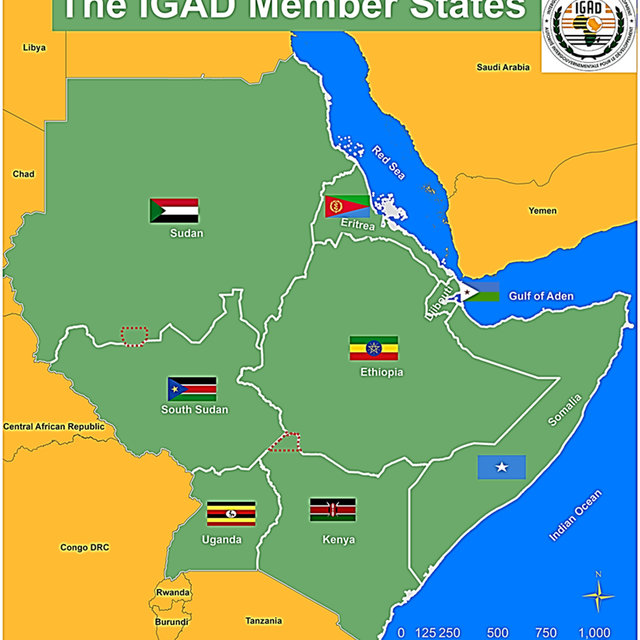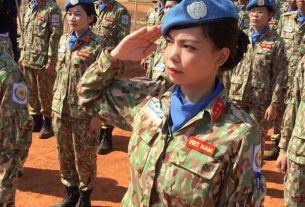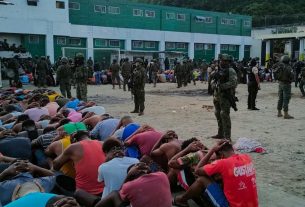By Dr. Suleiman Walhad
December 25th, 2022
The idea of thinking about a first century of a region such as The Horn of Africa States, is itself, a challenge. But thinking of it and presenting views on the matter, we must do. The intention is to present ideas of the regions’ agenda for its people, its prosperity and its political future. It is to construct a peaceful, cohesive, co-operating and developing region that is not at the butt of nations as it appears to be today but a region sitting at its proper place around the table of nations. We understand that bringing the Horn of Africa States up from the disparate single states it is today to a united and integrated region, which many do not want, is not an easy challenge or an easy task. It would be difficult and a steep gradient. However, that it is to remain in this state of conflict-ridden unitary and lonely states is not a pre-determined destiny of the region. The destiny of any region is made by its people and there is no reason why the Horn of Africa States region should not seek its destiny in a collaborative and partnering process.
Its first century would have to build the people, remove and eradicate the hunger, disease and poverty or at least try to reduce them, such that it does not need handouts from others as is the case today. People of the region would have to relearn that they can produce their food as they used to do always in the past. Have they not introduced their own grains such as the teff, the enset, the finger millet, the coffee and many other foods and fruits to the world and did they not always maintain underground silos saving food items and cereals for the future and for the difficult times? They did and even meat processing included drying it, immersing it in ghee, and storing them for years, if necessary. The region owned its own food production processes and should revert back to that mindset.
The first century of the region would take advantage of its geographic location. The region enjoys a strategic location and many a nation outside the region envy this location. No wonder we see the Americans, the Chinese, the Europeans and even the Saudis, the Iranians and the Turks and the Emirates in the region, all seeking to take advantage of the region. The Indians with whom the region shares the Indian Ocean also have their interest in the region and the millennia-old Egyptian interest remains unchanged. There is the life-giving River Nile, one of whose main tributaries come from the Horn of Africa States. It is a region that owns substantial wealth in terms of underground and overground resources. There are vast agricultural lands, vast seas and oceans, rivers and lakes and it has vast mineral resources including not only oil and gas but also gold, nickel, silver, chrome, rare earths and diamonds. It has potential renewable energy sources such as wind, solar and thermal, and even oceanic. The Horn of Africa States, let alone dying of hunger and starvation, is capable of feeding a large portion of the population of the world should the evil forces currently playing havoc on the region be handled and removed. It is why the region needs to be integrated to be able to handle matters related to the evil forces arrayed against it at present.
The first century of the region would concentrate on building peace in the region. Removing fear and violence is a prerequisite for any sustainable development and hence remodeling the region in a format that involves justice and inclusiveness, would push away fears of exclusion of portions of the population or the fear of domination by one party or another. Civil wars emanating from such fears and exploited by those who are no good for the region, have so far been the pain of the region. A peaceful and stable environment is the way of the future of the region and should hence color its first century as an integrated and united region.
The first century of the region would consider effective and efficient connectivity, without which any economic development would end to naught. It is the way of the future to have rail, roads, and marine transport connecting the region across its length and breadth. The region is not small and covers some 1.9 square kilometers and some 4,700 km of a coastal belt from the southern reaches of the Red Sea to the Indian Ocean bordering East Africa and more specifically Kenya. It would require construction of vast transport infrastructures that would enable producers and consumers within the region to connect with ease and at manageable costs. It would also facilitate the region’s trade and other connections with the rest of the world and in particular with those who have interest in the region. On and above the hardware of connectivity, there should also be the software connectivity in terms of communication, the internet the telecommunications and other means of communication in the digital world of today and tomorrow.
The first century of the region would develop more software connectivity in terms or building up of the necessary governance and administrative requirements. There would be the commissions for foreign relations and domestic policies of the region, economic and finance commissions, and legal and judicial commissions, and others that parley the needs of the region. This would require changes and simplification of governmental policies, procedures, and business practices of the region and those of each country to enable smooth processing of finance, taxation, and general rule of law including those of punishment for those who abuse or transgress the law. It is where the security apparatus would need to be remodelled to serve a peaceful and stable region and protect it.
All of the above and other requirements of the region would need financing. Should the region seek foreign financing, or should it raise it at home? What is the cost benefit analysis of either one? In the first century of the region, it should start to learn to rely on its own resources and this means, it should raise all the financing it needs domestically from within itself, sourcing them from its own financial institutions, government budgets, municipalities, and local investors. There is nothing better than getting buy-ins from one’s own. If the people of the region and its institutions are mobilized to finance the project, it would succeed and would, indeed, lay down the groundwork for a successful, cohesive and strong region, that is respected and awed by both enemy and foe. A perfect example of how local finance can be the saviour of the region is the financing of the Grand Ethiopian Renaissance Dam or the GERD. When the international financial system turned its back on the project, it was financed locally and many of the projects outlined here, and many others can and would be financed locally from within the region.
In the Horn of Africa States, we say that if people can come together, they can even mend a crack in the sky. This points to the fact that if people can together, they can achieve almost the impossible and presenting thoughts on the first century of the region would add on to the realization of the Horn of Africa States region, as a self-reliant, united, and integrated region.
Dr. Suleiman Walhad writes on the Horn of Africa economies and politics. He can be reached at [email protected]



